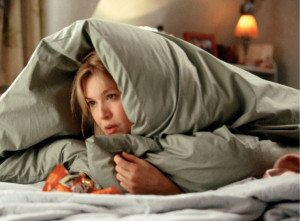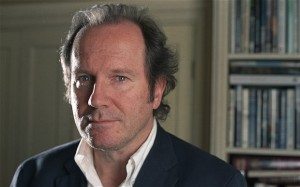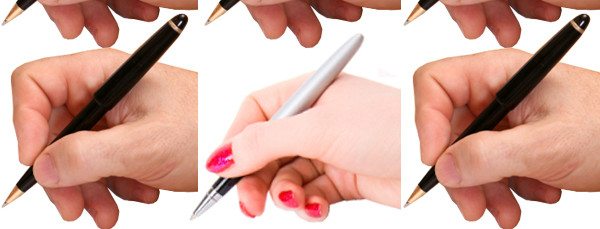Literary battle of the sexes
The Female Perspective – Amber Reeve
[dropcap]W[/dropcap]ith such a diverse spectrum of literature out there, it seems clear to me that books written by men and books written by women are very different. You only need to look at a few examples: the stark difference between the style and subject of Ian Fleming’s James Bond series and Sophie Kinsella’s numerous fictions, portrays the fact that men and women write about very different things. It follows, therefore, that men and women desire to read very different things too. It cannot be denied that Sophie Kinsella’s series of female orientated novels are unlikely to be read by a majority male audience, and the converse argument can be said of novels such as James Bond or the science-fiction genre and a female audience. This raises the question: are male or female authors better?
 Being female, I cannot deny that I am swayed towards the female perspective. After we consider that men and women write differently, and want to read different things, it seems acceptable to enjoy a book by an author of the same sex, based on pure similarities between the author and yourself. It is interesting looking at the differences in style between male an female writing; female writing can often by categorised by a personal, chatty and diary-like style, the prime example of this being Helen Fielding’s Bridget Jones’s Diary. Surely it is not surprising that females are going to be more inspired to read it, and enjoy it more than a male because of the feminine familiarity they will feel from the style and subject? This is in direct comparison to male writing which can often be more third-person based, less personal and serious. It is the very style in which they write that has such a comforting effect on the reader and makes emale writers, in my opinon, better. This sense of being understood, of familiarity and reassurance felt from reading a female author’s work does not happen when you read a book written by a male author. After reading Bridget Jones I felt a sense of ‘I’ve been there’, and realising other females had been there as well, I could enjoy and relive past embarrassing moments.
Being female, I cannot deny that I am swayed towards the female perspective. After we consider that men and women write differently, and want to read different things, it seems acceptable to enjoy a book by an author of the same sex, based on pure similarities between the author and yourself. It is interesting looking at the differences in style between male an female writing; female writing can often by categorised by a personal, chatty and diary-like style, the prime example of this being Helen Fielding’s Bridget Jones’s Diary. Surely it is not surprising that females are going to be more inspired to read it, and enjoy it more than a male because of the feminine familiarity they will feel from the style and subject? This is in direct comparison to male writing which can often be more third-person based, less personal and serious. It is the very style in which they write that has such a comforting effect on the reader and makes emale writers, in my opinon, better. This sense of being understood, of familiarity and reassurance felt from reading a female author’s work does not happen when you read a book written by a male author. After reading Bridget Jones I felt a sense of ‘I’ve been there’, and realising other females had been there as well, I could enjoy and relive past embarrassing moments.
However, thinking of slightly different female writers, for example Margaret Atwood, I am reminded of the ultimate power of female authors and the impact of female writing on society and cultural shifts. Female authors do not only provide a light-hearted and comforting read, but a read that empowers the reader as an individual; reminding them the valuable perspective of the female author. Prime examples of great female authors that pioneered the way for the female perspective: Virginia Woolf, Angela Carter and Katherine Anne Porter, all highlight the fact that this perspective in literature is one that can- not be emitted. It is an identity of power and strength; a valuable voice gained by female authors of the past that must now still be lis- tened to, laughed at and enjoyed.
“It’s all about my boys” – Rebecca Myers
My favourite authors are, in no particular order, Martin Amis, William Boyd, and Leo Tolstoy. My favourite authors are all men.
 Despite the fact that there isn’t a single book by a woman on my To Read list that doesn’t have at least a thin layer of dust, it has taken me years of denial to finally come out and say it: I prefer male authors. Years of hiding McEwans under my pillow, blushing behind Boyds on the commute, shamefully wishing I had a kindle for my Irving, and now I am finally admitting it.
Despite the fact that there isn’t a single book by a woman on my To Read list that doesn’t have at least a thin layer of dust, it has taken me years of denial to finally come out and say it: I prefer male authors. Years of hiding McEwans under my pillow, blushing behind Boyds on the commute, shamefully wishing I had a kindle for my Irving, and now I am finally admitting it.
An eternal advocate of écriture féminine, I have devoured women’s literature for years. I had my Woolf phase, I idolised Cixous. Having shaped my life, sort of accidentally around feminism in all its forms, especially in literature, I have been no stranger to the phenomenal wealth of brilliant women writers we have on offer, both in Britain and the world. Yet time and time again, I return to my boys – my Amis and my Boyd. Whenever I am in search of a read I want to know will be good, I instinctively pluck them out of the bookshelf and dive in, throwing abandon to the stacks of women authors that wait patiently for me to discover them.
I do not believe men are better writers than women. In fact, écriture féminine and all the criticism it entailed is quite possibly some of the best words ever to appear on paper. But, curled up with my cuppa and in need of some stunning wordsmithery to coax me into escape, my inner bookworm craves the delicious, dirty, belly-shakingly wit of modern, middle-aged, middle-class, male authors. It’s not that I don’t think women can produce it. It’s just that I have found two prolific men who can.
There are a whole host of issues here, not least of all how boring and narrow-minded I am becoming, and how ashamed I am of that. But there is also an issue to address in the nature of the literature I enjoy. For a self-confessed hardcore feminist, it is a little tricky to actively enjoy a… well, hardcore misogynist. There is much debate around Martin Amis’ writing on women, and a lot of it is not favourable. And yet I love him.
To that criticism I say yes: you have a valid point. His treatment of women is intensely problematic, his own personality filled with white middle-class man syndrome. Yet I equally have a duty, as an Amis-devourer, to say: scrutinise the way he writes his women. Scrutinise his female characters. Because sometimes, just sometimes, they’re very, well, womanly.
And, other times, it helps me to live inside the head of these men, these men of this man’s world who disdain the introduction of women into their important manly lives. Join ‘em to beat ‘em.
As for Boyd, his female characters – often his actual protagonists – are in an entirely different league. And, in this, I can defend my preference. I have long been of the opinion that it is hard to understand how it feels to have a penis, without actually having a penis. By the same token, it is hard to understand how it feels to have a womb without having a womb – more so due to the burden of knowing the power of that womb to bear children. The admiration, then, at knowing that Boyd can so completely suspend his lack of womb that I, a womb-owner, can bond with, engage with, and genuinely weep at his female characters, overwhelms me as a reader; the reverence must be absolute.
It is an achievement for any author to write a character that you connect with intensely. It is an achievement for a woman to write a man. But I honestly believe that, just possibly, the hardest job of all, is for a man to write a woman.
I don’t want male authors to speak for us, and I don’t want women’s voices to stop filling my shelves with wisdom and genius. But I will no longer hide my appreciation for the men who try to understand what it must be like to be a woman. And I will no longer hide my love for the men who do it incredibly, impossibly, immeasurably well.

Comments